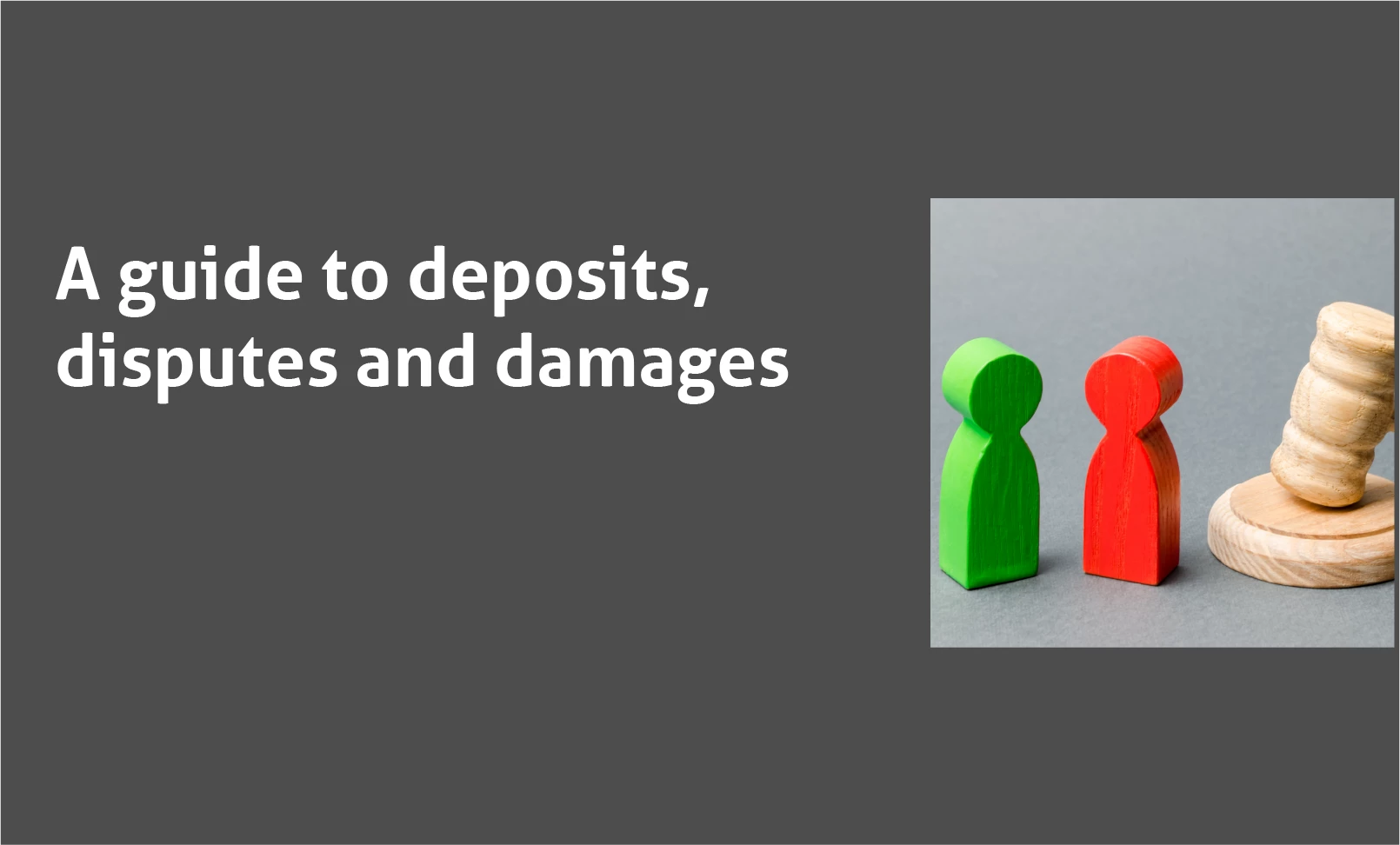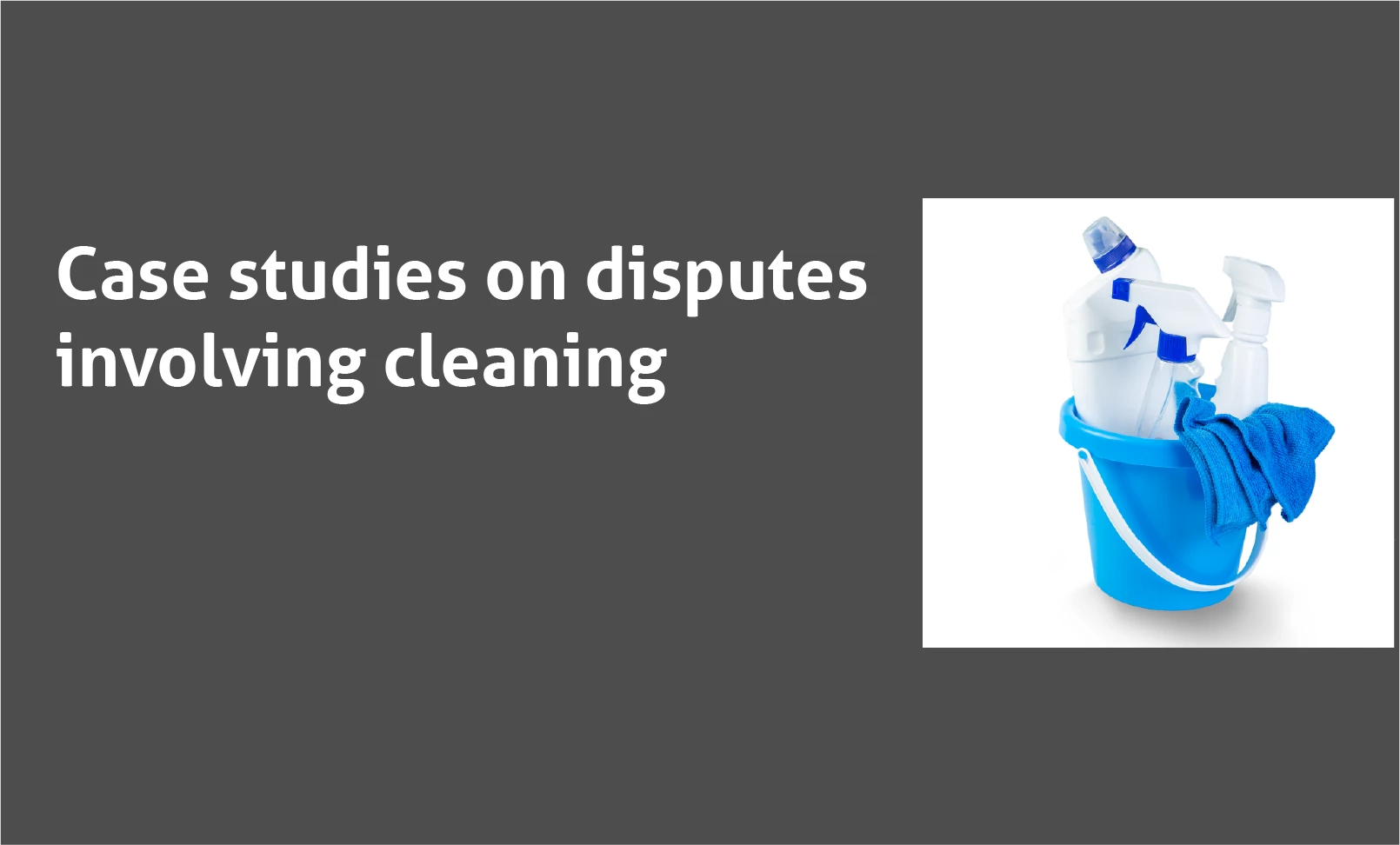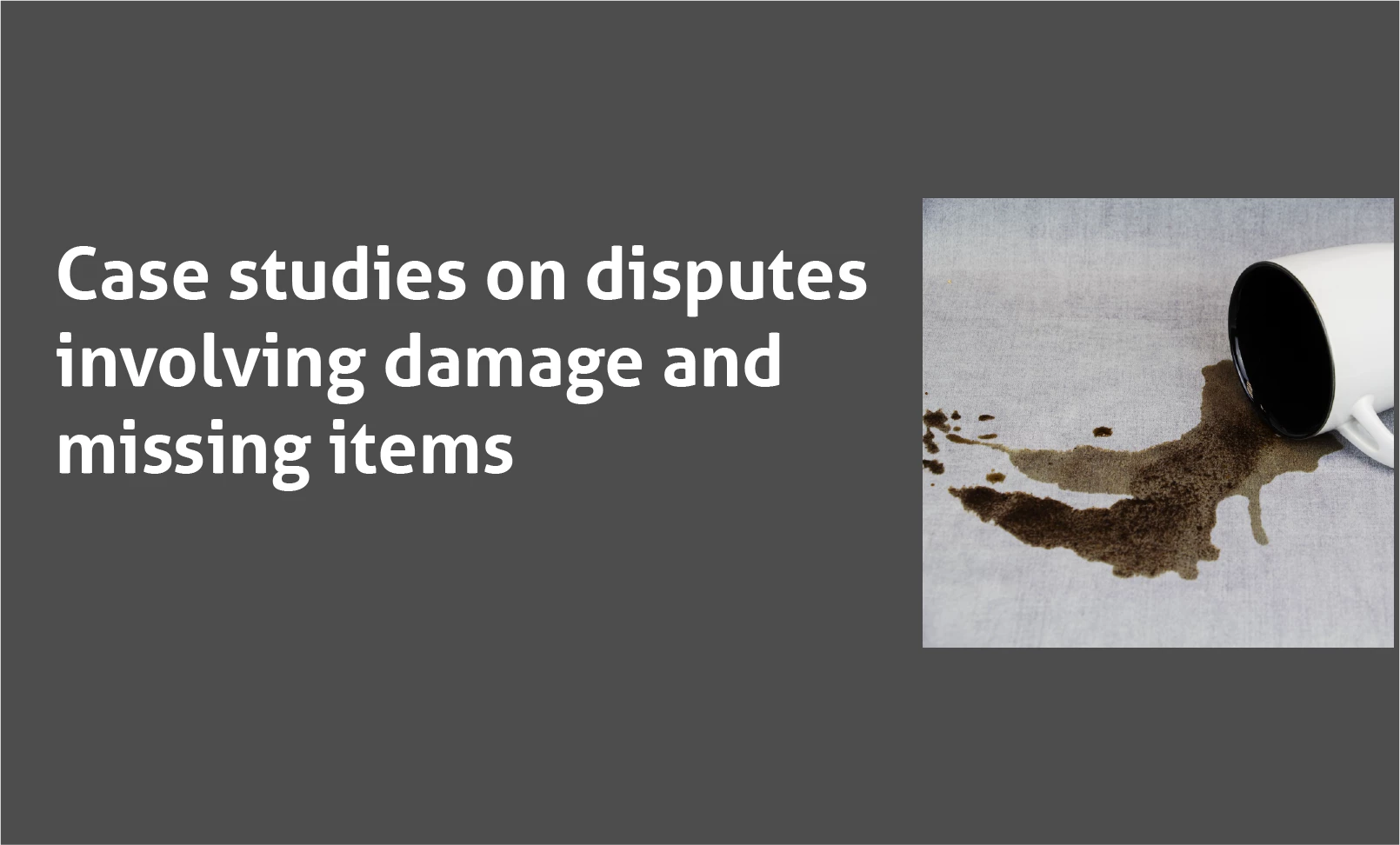Accessing the ADR service
After the tenant and landlord have completed the repayment process, any cases where there has not been full agreement will pass to the SafeDeposits adjudication team. The only exceptions will be cases where the tenant has opted to take the dispute to court, or has failed to give their consent to the SafeDeposits ADR process.
SafeDeposits will check whether there is agreement over any of the deposit. If it is clear that part of the deposit is not in dispute, we will arrange for payment to be made to the parties.
We will notify the parties about what is in dispute and any payments we are able to make before adjudication. At the same time, we will ask the landlord or agent to complete a Dispute Resolution form and submit evidence in support of their claim. The landlord or agent will be given 10 working days to provide this information.
The information can be provided in the following ways:
- Through the evidence portal included in your online user account
- By post to:
SafeDeposits Scotland
Lower Ground
250 West George Street
Glasgow
G2 4QY
Once we have received the landlord/agent evidence, we will provide a copy of it to the tenant and ask the tenant to complete a Dispute Resolution form and provide their evidence. Again, the tenant will be asked to respond within 10 working days. If there is more than one tenant, the lead tenant identified during the repayment process will be responsible for responding on behalf of all joint tenants.
The tenant can view the landlord/agent evidence via the tenant evidence portal and can provide their evidence in the same way as described above.
Once the tenant has submitted their evidence, we will provide a copy of it to the landlord/agent, who will have 5 working days to comment. This stage is not for providing further evidence: the landlord/agent is invited to provide comment only. The adjudicator will not consider any further evidence, even if a landlord/agent provides it, and will only take comments into consideration. The tenant will be able to see what comments have been provided, by logging into their online user account, but they will be unable to respond to them.
Checking the evidence
SafeDeposits’ adjudication process is not investigative, so we will not routinely contact the parties to ask for additional evidence. It is up to the parties to decide what they wish to send to us. However, we will make best efforts to check whether all the evidence you say you have sent us has been received and is legible. If it is obvious that something is missing we may contact the landlord, agent or tenant to give them the opportunity to provide that evidence again.
We will also check that reasonable efforts have been made by the parties to resolve the dispute before adjudication.
What the parties need to know about the adjudicator's approach
The file of evidence will be passed to one of SafeDeposits’ adjudicators, who will make an independent decision based on the information provided. The adjudicator has 20 working days to reach a decision. You should bear in mind the following points:
- You will not be asked to meet with the adjudicator and the adjudicator will not contact the parties to ask questions or seek further information;
- The adjudicator will not visit the property;
- SafeDeposits can only award up to the value of the deposit or amount identified as being in dispute, although it is still advisable to let SafeDeposits know if the total value of the claim exceeds the deposit as this can still affect the final outcome;
- The adjudicator can only deal with a landlord’s/agent’s claim against the deposit. The adjudicator will not look at complaints about the conduct of the parties, or any issues of set-off or counterclaim made by a tenant;
- The adjudicator’s starting point is that the deposit is the tenant’s money and it is for the landlord to state their claim clearly and support it with evidence;
- The adjudicator considers the evidence on the ‘balance of probabilities’;
- Although an adjudicator may take into account one party’s failure to respond to the dispute, SafeDeposits will not make an automatic award to one party based solely on the failure of the other party to respond. However, where one party fails to submit anything to support their position when they are invited for evidence, the disputed amount is likely to be awarded to the other party;
- An adjudicator is not able to look again at any matters which have already been considered by a court.
The adjudication decision
Once the adjudicator has reached a decision, SafeDeposits will send a copy of it to the parties to the dispute. This is the adjudicator’s initial decision and it will indicate the proposed award(s) and the reasons for the decision. No payments will be made at this point.
The parties will be asked whether they wish to request a review of the initial decision. This must be received within 10 working days and it is not possible for extensions of time to be granted.
It is not possible to request a review because you do not agree with the outcome of the decision, but you can make a request if you think that:
1. The adjudicator has made an error in law, which you will need to specify, and/or;
2. There is a factual error in the decision. Any factual error must be based on the evidence which was available to the adjudicator. The review process cannot be used to submit further evidence to strengthen a case.
A member of the adjudication management team will look at any review requests. We will let you know if we do not accept the request and we will give our reasons. If we are likely to accept a review request, we will let the other party know and offer them the opportunity to comment.
The case will then be passed to another adjudicator who will look at the evidence again. If the second adjudicator reaches a different decision, this will be the final decision. If the adjudicator decides that the first decision should stand, then the initial decision will become the final decision. It is not possible to ask for another review. Payment will be made to the parties within 5 working days of the issue of the final decision.
Continuing negotiations
SafeDeposits recognises that the parties may continue to correspond about the dispute even after it has been accepted for adjudication. The parties can ask SafeDeposits to suspend the adjudication process or ask for it to be withdrawn at any point before the adjudicator makes a decision. Suspension or withdrawal can only take place with the consent of both parties.
If adjudication is suspended or withdrawn, payment will be made to the parties in accordance with any agreement they have reached between them. Where no agreement has been reached about payment, payment will be made in accordance with the landlord/agent Proposal for Deposit Repayment.



